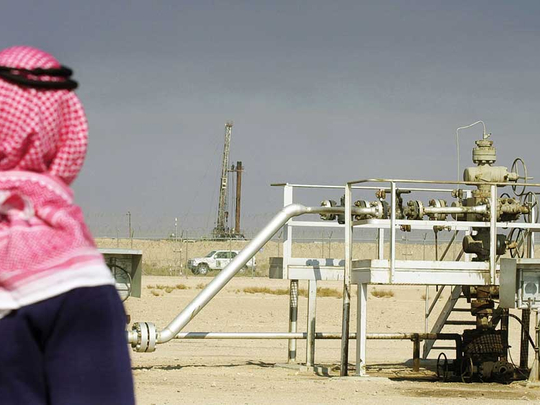
Abu Dhabi: Oil prices will continue strengthening towards $80 (Dh293.84) per barrel due to geopolitical uncertainties in the market, but rising US production is expected to counter efforts by the Organisation of the Petroleum Exporting Countries (Opec) to curb production and keep the market tight, experts said.
Global benchmark Brent was at $78.51 per barrel, down by 1 per cent, when markets closed on Friday, while US West Texas Intermediate weighed in at $71.28 per barrel.
Oil prices are trading higher due to a production cut agreement between Opec and non-Opec members, healthy demand and geopolitical tensions in the Middle East. The decision by the US President Donald Trump to pull out of Iran nuclear deal also bolstered oil prices in the last few weeks.
“Oil prices have held firm on Friday, continuing the momentum from the geopolitical uncertainties in the market,” said Mihir Kapadia, CEO and founder of Sun Global Investments in London. “There is uncertainty lingering as US production is expected to continue to counter Opec’s effort at curbing production and holding the market tight.”
The post-Iran deal suspension period has boosted Brent to three-and-half-year highs of around $80. Overall, oil prices are up 18 per cent this year.
Ehsan Khoman, director, head of Research and Mena strategist at MUFG Bank, said the current spot prices will only incentivise shale growth, leading to market share gains that will be difficult to reverse.
“This leads us to the conclusion that today’s actions in support of prices could be laying the foundation for tomorrow’s oversupply,” he told Gulf News.
The other important factor that is likely to affect oil prices in the coming days is the next month’s Opec meeting in Vienna and whether there will be a continuation of the production cut agreement into 2019.
“If Moscow rejects a production cut extension, oil might soften substantially as current prices are fundamentally supported on the prospect of a continued supply squeeze,” said Benjamin Lu, commodities analyst from Singapore-based Phillip Futures.
Opec and non-Opec members led by Russia are cutting production by about 1.8 million barrels per day to reduce global oil inventories and support oil prices. The agreement, which came into effect in January 2017, will continue until the end of this year.
Francisco Quintana, head of strategy at Foresight Advisors, said an oil price of $60 per barrel is unlikely this year.
“It would require either a serious economic downturn or the Opec agreement breaking up. None of these seems probable in the near term. Oil will be hovering around the high 70s and low 80s for the remainder of the year.”












